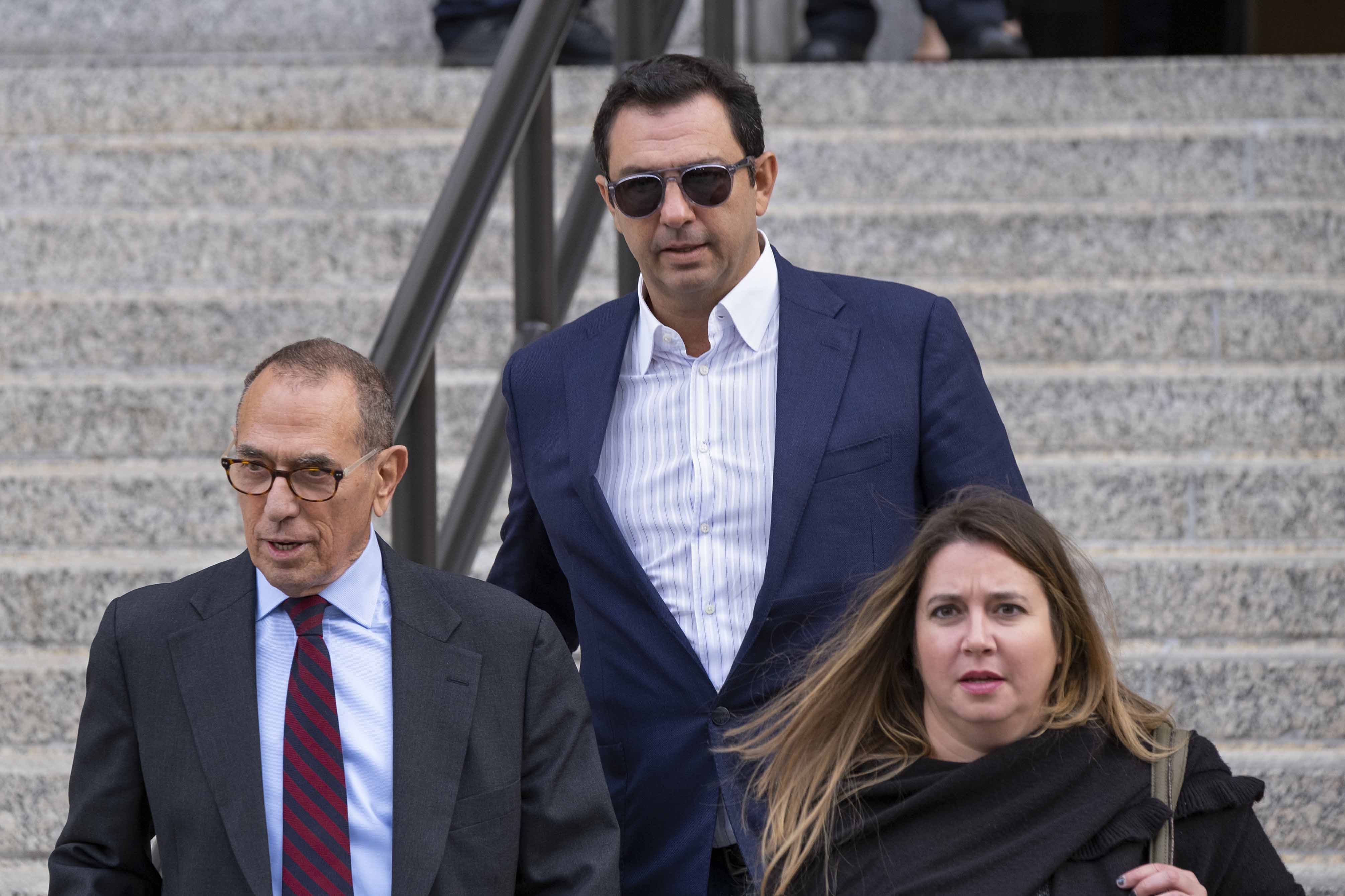
Kukushkin was indicted alongside the businessmen Lev Parnas and Igor Fruman—who have for unrelated reasons become central players in President Donald Trump’s impeachment—and their associate David Correa. All four men have pleaded not guilty. Kukushkin’s lawyer was not immediately available for comment.
The VA’s proposed Cooperative Research and Development Agreement, known as a CRADA, with Kukushkin’s company, Oasis LLC, has not been previously reported. National security experts say the arrangement raises red flags, given the level of access Kukushkin and his alleged Russian funder would have had to government scientists, including one who does work with the Pentagon.
It also suggests that the VA, which has long been seen as stymieing cannabis research, has considered studying the plant’s effect on cancer growth with at least one private marijuana business. The agency appears to have stopped publicly listing its CRADAs in 2017.
A spokesperson for the San Francisco VA Health Care System said in a statement that the proposed agreement was rejected by the system’s research review work group. “The San Francisco VA Health Care System does not have a relationship with the group in question,” said Deputy Public Affairs officer Jason Dominguez.
But the proposal was signed by a top researcher at the San Francisco VA Medical Center, Dr. Yuichiro Tanaka. In a Sept. 18, 2019 email to Kukushkin, obtained by POLITICO, Tanaka attached the research proposal and said he was looking “forward to working on our project.”
Copied on the email was Dr. Rajvir Dahiya, a senior research scientist at the VA and a scientific reviewer and chairman for the Pentagon’s medical research programs in prostate, breast and ovarian cancer, according to his UCSF biography.
Oasis LLC, which lists Kukushkin as its manager, has promoted its research with the VA in the past. When the company was denied a permit in late 2017 that would have allowed it to cultivate medical cannabis at the address listed on the research agreement with the VA, it cited its “leading edge technology and our Veterans Administration CRADA for cancer research at UCSF” in its appeal.
It’s not clear where the cannabis extract for such an agreement would come from. The government keeps a stockpile of marijuana for medical research purposes at the University of Mississippi, and it is the only source allowed for researchers who want to conduct Food and Drug Administration-approved tests. But the proposed agreement between the VA and Oasis LLC does not mention U-Miss.
There are signs that Kukushkin intended to grow it on his own: In March 2019, months before receiving the proposed research partnership from the VA, Kukushkin submitted a detailed plan to the Alameda County board of zoning adjustments to build a 34,213- square-foot greenhouse building with a 22,000-square-foot cannabis canopy and a 6,480-square-foot processing building.
The proposed agreement is surprising to those familiar with cannabis research, as those trying to study the drug run up against federal barriers to research.
Dr. Sue Sisley, who is conducting the first FDA- and DEA-approved clinical trial on cannabis, has criticized federally approved marijuana as subpar. Researchers like her are barred from studying marijuana available on the in-state markets because those businesses violate federal drug laws.
If the VA researcher indeed intended to use marijuana grown by a California cannabis company, “it’s all but certain that it’s illegal,” said Shane Pennington, an attorney who represented Sisley in a lawsuit against the DEA for holding up medical marijuana research.
Researching controlled substances requires sign-off from the DEA, Pennington noted.
According to federal prosecutors, Kukushkin’s marijuana projects—which he was pursuing with Parnas, Fruman and Correia—were funded by a Russian national who has since been identified in press reports as Andrey Muraviev.
Kukushkin had been working with Muraviev to break into California’s cannabis market for at least a few years before his indictment, according to the New York Times. But there is no evidence the VA was aware of Kukushkin’s relationship with the wealthy Russian cement magnate before it proposed partnering with him on the cannabis research project.
Muraviev is the former president and CEO of Sibir Cement, one of Russia’s top cement producers. He is now the president of Parus Capital, a Russian investment fund.
The men “planned to use” Muraviev as “a source of funding for donations and contributions to State and federal candidates and politicians in Nevada, New York, and other states to facilitate acquisitions of retail marijuana licenses,” according to the indictment, which refers only to the person reported to be Muraviev as “Foreign national-1.” But Kukushkin sought to hide Muraviev’s involvement because of Muraviev’s “Russian roots and current political paranoia about it,” prosecutors say.
Experts say that any hidden funding, especially out of Russia, raises the prospect of an intelligence operation. And the burgeoning legal cannabis industry is a “great angle to get intel hooks into people,” said one former national security official, because it provides opportunities to legitimately interact with high-value targets.
“Anything involving Russia and something under the table, such as secret funding, is always suspect and worthy of further investigation,” said another former official.
Kukushkin’s lawyer, defense attorney Gerald Lefcourt, has alleged that intelligence files exist on his client, as well as on Parnas, Fruman and Correia, according to a letter he wrote a federal judge in December—especially because the indictment quotes from conversations they had with each other.
Lefcourt argued that the men are entitled to know whether they were monitored “as a result of [Foreign Intelligence Surveillance Act] warrants, National Security Letters, or any other form of NSA or intelligence agency surveillance,” and asked Judge J. Paul Oetken to order prosecutors to disclose whether any such surveillance occurred.
“It is clear,” Lefcourt continued, “that the allegations involve matters of national security and conduct and communications of United States and foreign political leaders.”
Source: politico.com
See more here: news365.stream






